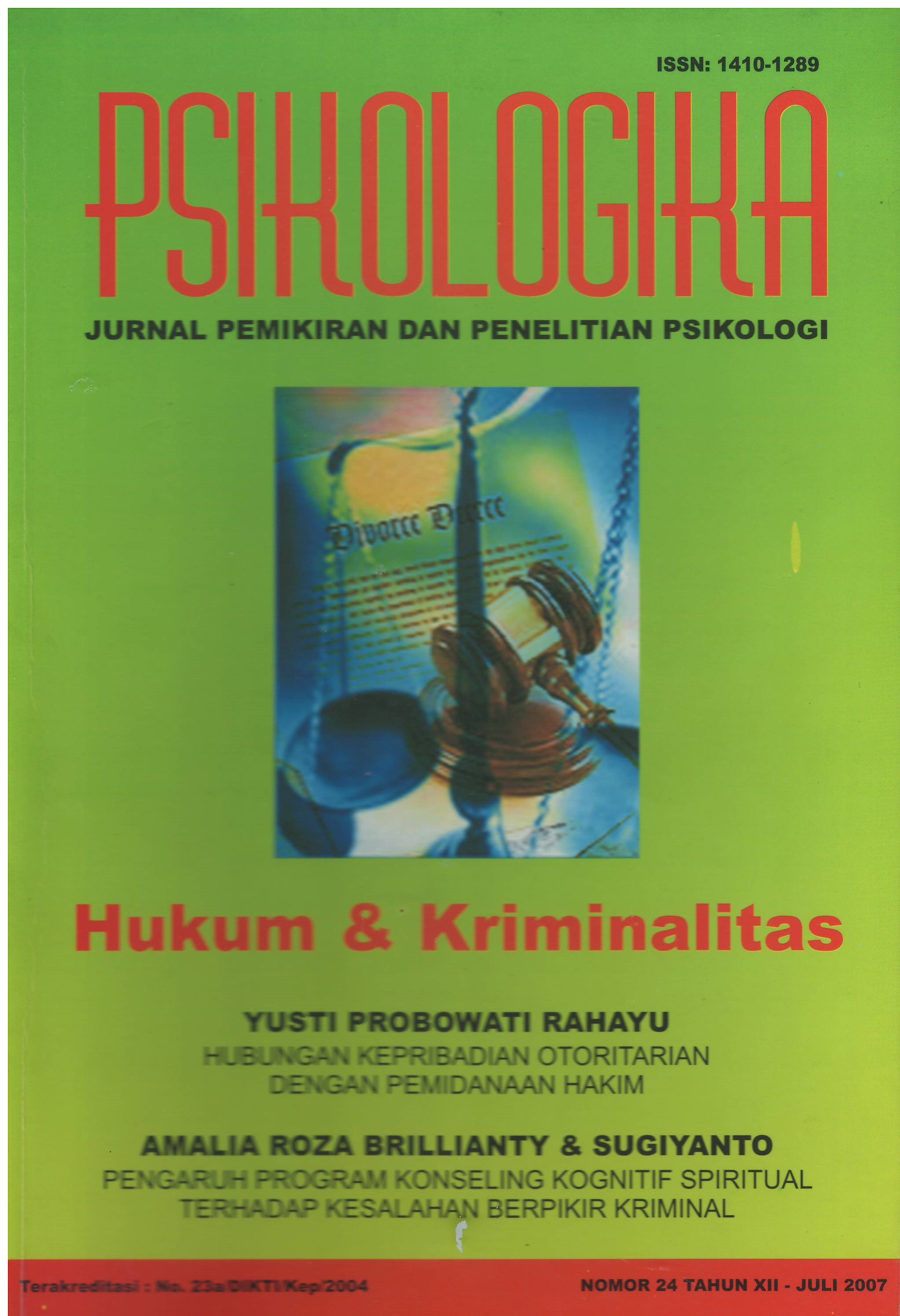Main Article Content
Abstract
This study focuses on cognitive aspect of criminal act. Intervention of the criminal thinking patterns merges the cognitive and spirituality principles. This Intervention called Cognitive Spiritual Counseling Program. The objective of this study is to examine the influence of this program to the criminal thinking patterns on women prisoners.
The sample consisted of women prisoners who were incarcerated in a county jail in Padang as control group (N = 10) and Bukit tinggi as experimental group ( N = 12). Level of the 10 criminal thinking patterns were assessed by 10 BKB Scale.\
The result of ANOVA repeated measure showed that F=3,414, p = 0,020. It means this program was effective to reduced the ten criminal thinking patterns. Three main pillar of this program decreased the level of thinking error were readiness and willingness of the subject, acceptance of the mentor and the material of the program. This program is unique considering it merges the cognitive and spirituality principles to reduced the criminal thinking patterns. This study also successfully revealed some factors that encouraged those criminal thinking patterns after the program. Those factors were included the perception of sentence, society’s judge ment, the environment they live in after the jail and the fulfillment of live necessities. Capitalistic live style also plays in maintaining criminal thinking patterns. We proposed this program would not successfully carried out without any other programs in prisons and should be done continuously so that the number of prisoners would decrease.
Â
Key words : Â Criminal thinking patterns, Cognitive Spiritual Couneling Program, women prisoners
Article Details
Authors who publish with this journal agree to the following terms:
- Authors retain copyright and grant the journal right of first publication with the work simultaneously licensed under a Creative Commons Attribution-ShareAlike 4.0 International License that allows others to share the work with an acknowledgment of the work's authorship and initial publication in this journal.
- Authors are able to enter into separate, additional contractual arrangements for the non-exclusive distribution of the journal's published version of the work (e.g., post it to an institutional repository or publish it in a book), with an acknowledgment of its initial publication in this journal.
- Authors are permitted and encouraged to post their work online (e.g., in institutional repositories or on their website) prior to and during the submission process, as it can lead to productive exchanges, as well as earlier and greater citation of published work (See The Effect of Open Access).
